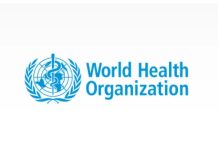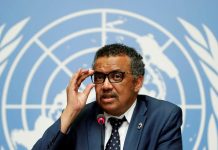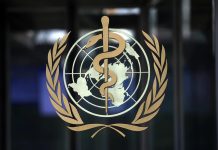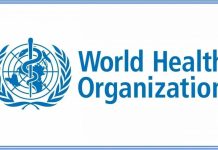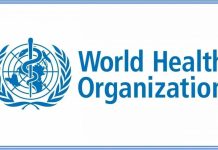Africa Press-Nigeria:
The health and safety measures against the coronavirus disease (COVID-19) pandemic advised by the World Health Organisation (WHO) and adopted by countries around the world include the regular cleaning of hands, maintaining distance between persons, avoidance of crowded spaces, and the wearing of facemasks. Even though the pandemic’s spread has not been as exponential as many feared it would be, West African countries are not safe as community transmission continues to spread the coronavirus. The lifting of lockdown measures almost everywhere now signals that protective measures are essential as the pandemic may be around for much longer. It is therefore within this context of a raging pandemic that six countries – Benin, Burkina Faso, Côte d’Ivoire, Ghana, Guinea and Niger – face the dilemma of striking the balance between public health and safety, and the holding of credible elections. It is useful to consider what credibility issues may be affected if countries decide to conduct elections despite the pandemic, keeping in view those above restrictive protective measures.
The Question of Disenfranchisement
Countries in the region need to update or completely redo their election registers before the elections, and this is through the standing on queues and direct data capture. With the onset of COVID-19, several countries are contending with the difficulty in engaging with this process. There are several questions here: How will the pandemic and personal protective measures affect the registration process? How do electoral commissions plan to engage people with comorbidity illnesses, who will avoid going out to register or vote? How about older persons who are also at higher risk? There is the real chance that ordinary citizens may not feel comfortable going to the registration centres. The question of what happens to people who are unable to register and therefore participate in the elections is critical.
Another issue with regards to the question of disenfranchisement is how social distancing measures, including the requirement to wash hands, will increase the time spent in the queue before voting. Additionally, if access to the polling station/centre is predicated on the possession of face masks, as some countries have directed, what will be the fate of those who are unable to possess these masks to enable them cast their ballot?
Quality of Management of the Electoral Process
The COVID-19 restrictions include limits on the number of people allowed to gather physically. The training of electoral officials and ad-hoc staff is bound to be affected by this. The problem of inadequate training of electoral officials has always been a critical issue for many countries in the region, as highlighted by several observer reports. There is also the real chance that some of the agents will fail to show up on polling day.
Election observation, considered as one of the measures that ensure electoral transparency in our region, is likely to be compromised by air travel limitations and risks. Restrictions will make it difficult or impossible for international observer groups to travel. Domestic observers might also find it difficult…to purchase the personal protection equipment…
There are further concerns with regards the timely acquisition of necessary equipment and voting materials. Many countries within the region still rely on the importation of election materials from outside the region and continent. There is a real chance that election materials may not arrive on time or may fail to be delivered.
Voting Information
Voting information, especially conversations on significant issues of concern for citizens, is expected to be the base of voters’ decision to come out to vote, even in mature democracies. Sadly, for most of our countries, campaigns ahead of elections provide the only platform by which most citizens can engage with their elected officials on issues of concern for them. This is bound to be disrupted by social distancing measures. Already in some countries, politicians have been advised to consider taking their campaigns to online media platforms and other non-physical channels. As discussed above, this is bound to be problematic for persons with limited access to information dissemination platforms and will seriously affect citizens’ quality of engagement with the process.
Transparency of the Process
Election observation, considered as one of the measures that ensure electoral transparency in our region, is likely to be compromised by air travel limitations and risks. Restrictions will make it difficult or impossible for international observer groups to travel. Domestic observers might also find it difficult, because of cost, to purchase the personal protection equipment, and the capacity to watch tallying and counting at various centres may become a challenge. COVID-19 may very well demand a new form of monitoring elections.
Political parties’ participation at the tallying and voting collation centres may also be affected, as is the case in some countries in the region during recent elections. This has already been experienced in some locations where, due to distancing measures, party representatives could not be accommodated at the collation centres. This can lead to tension and misunderstanding and negatively impacts the perception of a transparent process. Additionally, in many countries, citizens are permitted to wait behind at polling stations to observe the vote-counting process. This mandate protection increases trust and confidence in the process but may not be possible with restriction measures.
EMBs will need to explore online recruitment and training of staff. They must ensure that they have back up trained ad hoc staff who can easily step in as a result of any eventuality. They can also examine the possibility of sourcing the local production of election materials and not be heavily reliant on importation.
What Is Doable?
On disenfranchisement: Electoral management bodies (EMBs) should (i) design credible protective measures (for their staff and for voters) and develop communication strategies that convince voters that they can safely go out to vote; (ii) if necessary, reduce the number of voters per polling stations and/or increase the time of voting. They could even consider spreading voting over two days, instead of one; (iii) they can design software allowing voters to check where and when they are supposed to vote;
On transparency of the process: (i) At closing, the polling staff can be allowed to choose one or two voters to stay around to observe the counting at the polling station level; (ii) candidates/parties can select among themselves, the numbers that the tallying centres can accommodate and the same can apply for observers; (iii) EMBs can increase transparency of the collation process by posting collated results electronically;
On information: (i) Candidates/political parties should be mindful of the audiences of the different media platforms in each country; (ii) civil society groups involved in voters’ education (either on how to vote and/or issues based campaigning) should also take into consideration the different medium of communication and demographics for dissemination of voter information; (iii) other innovative measures at the community level such as using traditional structures of communication by means of community leaders, for instance;
On the management of the process: EMBs will need to explore online recruitment and training of staff. They must ensure that they have back up trained ad hoc staff who can easily step in as a result of any eventuality. They can also examine the possibility of sourcing the local production of election materials and not be heavily reliant on importation.
Legitimacy of the Outcome
While health protection measures must be adhered to, to ensure that citizens’ lives are not put at risk in the exercise of their franchise. Whatever measures that will be put in place by governments must be fair, inclusive, and balanced. It must consider the different demographics in society and how they will be affected by these measures. There can be extensive consultations among political and citizen groups to assure of acceptability. Governments must take every step possible to ensure that citizens are not disenfranchised, that they are well informed, and that they deliver on a transparent and accountable process, if elections proceed amidst the pandemic.



